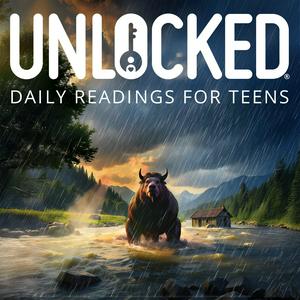Sword and Song
READ: 2 CHRONICLES 20:1-30; PSALM 149
Sweat stung my eyes as I practiced the intricate steps of my deadly dance. For the final step, I had always had trouble remembering not to hold my breath, so I imagined myself blowing a dandelion and scattering the seeds as I leapt into the air, swinging my sword in a wide arch.
“You are ready,” Uyanga bowed her head in approval before turning to go. What if I don’t feel ready? Gazing up at the starry heavens, I resolved to trust and whispered the prayer I was taught as a young child: May the praise of Gerel be in my mouth and a double-edged sword in my hand.
That night, I was awakened out of a deep slumber by the sound of the horn, a signal of alarm. The Children of Gerel gathered close to listen to Uyanga. “A vast army is coming against us; we must seek Gerel.”
One after another, people recounted Gerel’s power and might. I listened as those around me prayed: “We do not know what to do, but our eyes are on you.” Then Commander Batu climbed on a boulder and raised his hands high. “Do not be afraid, Children of Gerel! The battle is not ours; it belongs to Him! Stand firm and see how He will deliver us!”
The following morning as we journeyed to the desert to meet our adversaries, we were not silent. As one, the Children of Gerel sang: “May the praise of Gerel be in our mouths and a double-edged sword in our hands! We praise Your Name, Gerel! Your love endures forever!”
All around us, as the enemy closed in, we continued to sing and praise. Suddenly, a brilliant light flowed from our mouths and reflected off our swords. To the left, a portion of the army marching toward us fell down, dead. To the right, the advancing enemy seemed to be dissolved by the light surrounding them. Ahead, their weapons were rendered useless. And behind, Gerel set an ambush.
The Children of Gerel turned in every direction, joyfully shouting, for our enemies had been defeated. I threw back my head and laughed with abandon. All my training, all the grueling hours of building muscle and wielding my sword…to find the ultimate weapon was praise. • Savannah Coleman
• Today’s allegorical story is inspired by 2 Chronicles 20:1-30, when a vast army was coming against Judah. Instead of allowing panic to set in, Jehoshaphat “resolved to inquire of the LORD,” and all the people of Judah gathered to seek God (verse 3-4). Jehoshaphat reminded the people that the God of their ancestors, whose power and might had been displayed time and time again, was able to save them. Jehoshaphat knew that he and his people were not able to save themselves, and he encouraged them to fix their eyes on the one who was able (verse 12). While the people of Judah sang and praised God, He delivered them by sending ambushes against the army invading them (verse 22). So, when the army of Judah arrived at the battlefield, their enemies were already fallen. Consider taking some time to read 2 Chronicles 20:1-30 slowly. How is this Old Testament story similar to today’s fictional story? How is it different?
• Centuries after Jehoshaphat led the people in praise, Jesus came to fight the greatest battle of all. When Jesus died on the cross and rose from the grave, He defeated sin, death, and the devil so that we could become God’s children. Though we were not able to save ourselves, He chose to deliver us because He loves us. Now, if we’ve put our trust in Jesus, we can know that He is with us through every struggle, fighting on our behalf. And when Jesus returns, all suffering and sorrow will be gone for good. If you want to know more about this good news, see our "Know Jesus" page.
• When you or someone you love is going through a difficult situation, it’s...



